- 「子どもが素直に『ありがとう』と言ってくれない…どう促せばいいんだろう?」
- 「謝らなきゃいけない場面なのに、子どもが素直に『ごめんなさい』を言えないのはなぜ?」
- 「礼儀作法として教えるだけでなく、心からの感謝や反省を伝えられる子に育ってほしい」
私たち大人も、つい忙しさに流されて「ありがとう」を言いそびれたり、謝罪のタイミングを逃したりすることがありますよね。でも、子どもにとっては、その一言を交わす経験の積み重ねがとても重要。今回は、「ありがとう」と「ごめんなさい」の言葉が持つ力や、子どもの日常にどう根付かせるかについて考えてみましょう。
1.「ありがとう」の言葉が持つ力
子どもが小さいうちは、どうしても身の回りのことを大人が手伝う場面が多いものです。食事の準備や着替えのサポート、学校や習い事の送り迎えなど、「やってもらって当たり前」になりがちなことも少なくありません。しかし、そんなときこそ「ありがとう」の言葉がどれだけ相手を幸せにするかを伝えたいものです。
(1) 感謝の気持ちが人間関係を豊かにする
「ありがとう」という言葉には、相手への敬意と感謝の気持ちが込められています。子どもがこの言葉を自然に使えるようになると、周囲の人たちとの関係性もより暖かいものへと変わっていきます。実際、「ありがとう」を言われた相手は嬉しくなり、また協力したい・助けたいという気持ちが生まれやすくなるのです。
(2) 自分も幸せになる
感謝の言葉を伝えるとき、人は「相手から何かを与えてもらった」という事実を意識します。その積み重ねが「自分は周りに支えられている」という自己肯定感にもつながりやすいのです。子どもにとっては、「自分は一人ではない」「助け合うことで生活が成り立っている」という感覚が育ち、心の安定や前向きさを得られます。
(3) 小さな感謝を大事にする習慣づくり
日常生活で「ありがとう」を言う場面を積み重ねるためには、親がまずはお手本を示すことが大切です。たとえば、子どもが手伝ってくれたときだけでなく、ご飯を作ってくれた家族に「ありがとう」と伝える、自分の親やパートナーに小さなことでも感謝の言葉をかける、そうした姿を見て、子どもは感謝の言葉を自然に吸収していきます。
2.「ごめんなさい」の言葉が育む力
一方、「ごめんなさい」という言葉は、自分が何か失敗や迷惑をかけたときに使うものだと、多くの子どもはなんとなく理解しています。しかし、プライドが邪魔をしたり、失敗を認めたくない気持ちが強いとき、なかなか言葉に出せない場合があります。
(1) 認める勇気と成長のチャンス
「ごめんなさい」は、自分が誤った行動や発言をしてしまったことを認める一言。大人にとっても勇気のいる行為ですが、子どもにとってはさらにハードルが高い場合があるかもしれません。ただ、この言葉を言えたとき、子どもは「自分に間違いがあることを受け止める力」と「そこから立ち直る力」を少しずつ身につけていきます。
(2) 相手との関係修復を助ける
謝らないまま放置してしまうと、ちょっとしたトラブルが子ども同士の大きな溝に発展することもあります。「ごめんなさい」の一言は、相手との関係を修復するための第一歩。子どもが素直に謝れるようになると、友達同士のケンカや兄弟げんかがこじれにくくなり、「次はどうすればいいか」を一緒に考えやすくなります。
(3) 責めるのではなく「やり直し」を促す
親として、子どもに対して「謝りなさい!」と強制したくなる場面もあるかもしれません。ただし、子どもが自分の非を認めきれていないのに謝罪だけさせられると、「形だけの謝罪」になってしまうことも。大切なのは、子どもが自分で「間違えた」「傷つけてしまった」という事実を受け止め、改善の道を見つけるまでのプロセスに寄り添うことです。
3.親ができるサポート:実践編
(1) 具体的なシチュエーションを一緒に振り返る
子どもがトラブルを起こしたり、誰かに助けてもらったりしたとき、「さっきはどういう気持ちだった?」「相手はどう思ったと思う?」と問いかけてみましょう。子どもがまだ言葉にしづらい場合は、「お友達はこう感じたかもしれないね」「○○くんはびっくりしたんじゃないかな?」と補足する形で対話を進めます。そうすることで、子どもは「ありがとう」「ごめんなさい」を発するタイミングや意味を理解しやすくなります。
(2) 親自身が素直に謝る姿を見せる
親がミスをしたり、子どもに対してきつい言い方をしてしまったとき、素直に「ごめんね」と謝る姿は大きな見本となります。大人だからといって謝らないのではなく、間違ったら謝る、その姿勢を子どもは強く学び取るのです。
たとえば、約束していたことを忘れてしまったら「ごめん、約束していたのにママ(パパ)忘れちゃった」と一言伝えるだけでも、子どもは「あ、ミスをしても謝ればいいんだ」と安心できます。
(3) 仕組みづくりで習慣化をサポート
日常の中で「ありがとう」「ごめんなさい」を言いやすい環境を整えることも有効です。たとえば、家族で食事をする際、「いただきます」と一緒に「今日もご飯を作ってくれてありがとう」と言うことを当たり前にする。あるいは、友達とのケンカが起こったら、親が間に入って「どんな気持ちだった?」とお互いの気持ちを聞き取りながら、自然に謝る・感謝する方向に誘導していくのも一つの方法です。
4.子どもに伝えたい習慣づくりのヒント
(1) 小さな成功体験を積み重ねる
子どもが「ありがとう」「ごめんなさい」を言えたら、すかさずポジティブなフィードバックをすることが大切です。たとえば「ありがとうを言えたね!相手もすごく嬉しそうだったよ」「ちゃんと謝ったからお友達も分かってくれたんだね」というふうに、その言葉がもたらした良い結果を具体的に伝えます。
そうした小さな成功体験が積み重なると、子どもは「言ってよかった」「次も言ってみよう」という意欲を持ち続けやすくなります。
(2) 「相手の気持ち」を想像する習慣
「ありがとう」「ごめんなさい」を素直に言うには、「相手がどんな気持ちを持っているか」を想像する力が欠かせません。普段の会話や遊びの中で、「もし○○されたらどう思う?」とたずねたり、絵本やドラマの登場人物の感情を一緒に考えたりすると、子どもは自然と他者の感情に気を配る習慣を育んでいきます。
(3) 親子のコミュニケーションを大切にする
子どもが感謝や謝罪をためらう背景には、「言っても伝わらないのでは」「否定されるのでは」という不安があることも。普段から子どもの話に耳を傾け、気持ちを受け止めてあげる姿勢を示していると、「言葉にしても大丈夫」という安心感が育ちます。
結果、「ありがとう」や「ごめんなさい」も自然に口にしやすくなるでしょう。
まとめ
「ありがとう」と「ごめんなさい」は、子どもの社会性や人間関係を豊かにするうえで欠かせない言葉です。けれども、その言葉の本当の意味を理解し、素直に口に出せるようになるためには、大人が押し付けるだけでなく、日頃から親子で気持ちを共有しながら「言いやすい環境」を整えることがポイントです。
大切なのは、子どもが「言わなきゃいけない」と義務感で発するのではなく、「言ってよかった」「これで気持ちが通じた」と実感できる経験を積むこと。失敗をしても、謝ることで次へのステップが生まれるし、手伝ってもらったら感謝を伝えることで関係が深まる、そんな“言葉の力”を、子どもが日常で何度も体験できるようにサポートしていきましょう。
「ありがとう」と「ごめんなさい」は、子どもにとって一生を通じて使い続ける大切な魔法の言葉です。親がまずは自分の言動を見直し、積極的に使いながら、その価値を体感させてあげることが、子どもが将来さまざまな人とあたたかな関係を築くための基礎になっていくのです。
Teaching the Importance of “Thank You” and “I’m Sorry”
- “My child doesn’t naturally say ‘thank you.’ How can I encourage them to do so?”
- “They won’t apologize even when it’s obviously their fault. Why is that?”
- “I want them to learn not just the manners but the genuine feeling behind gratitude and remorse.”
Even we adults sometimes forget to say “thank you” in our busy lives or miss the right moment to apologize. However, for children, every single opportunity to say these words is a vital learning moment. In this blog, we’ll explore the power of these two simple phrases and how to weave them naturally into children’s daily lives.
1. The Power of “Thank You”
When children are young, adults often do many things for them—making meals, helping them get dressed, driving them to lessons. It’s easy for children to take these acts for granted. That’s precisely why we want to emphasize how saying “thank you” can brighten someone else’s day.
(1) Nurturing Warm Relationships
“Thank you” conveys respect and appreciation. Once a child starts using it naturally, their relationships often become warmer. Hearing “thank you” also makes others want to help again or do more for them, building a positive cycle.
(2) Gaining a Sense of Personal Well-Being
Saying “thank you” requires recognizing the help you’ve received from others. Over time, this encourages children to realize “I’m supported by those around me,” boosting self-esteem and offering a sense of stability and positivity.
(3) Building a Habit of Appreciation
To make “thank you” part of everyday life, parents should model grateful behavior. Thank your child when they help you, thank family members who cook or clean, so kids see gratitude as normal. Over time, they’ll naturally pick up the habit.
2. The Role of “I’m Sorry”
Children typically know “I’m sorry” is used when they’ve done something wrong or caused inconvenience. However, pride or fear of admitting failure can hold them back from saying it.
(1) Courage and Opportunity for Growth
“I’m sorry” is an admission of a mistake and requires courage—particularly challenging for children. But once they learn to utter those words, they begin developing the ability to acknowledge personal responsibility and move forward.
(2) Repairing Relationships
Failure to apologize can allow small misunderstandings to become major rifts between children. A sincere “I’m sorry” is often the first step in mending friendships or sibling relationships and helps shift focus to “How can we fix this?”
(3) Encouraging Problem-Solving Instead of Blame
In moments where a child should apologize, parents may be tempted to force a quick apology. However, if the child doesn’t truly accept their fault, it becomes a hollow gesture. The key is guiding them through the process—helping them understand their mistake and how to improve or make amends.
3. Practical Support from Parents
(1) Reflecting on Specific Situations Together
If a child has argued with someone or received help, ask questions like “How did you feel?” or “How do you think they felt?” If they struggle to articulate it, you can suggest possibilities: “Maybe your friend was really surprised,” or “They might have felt hurt.” This helps them see when and why “thank you” or “I’m sorry” might be appropriate.
(2) Showing Your Own Willingness to Apologize
When a parent makes a mistake—maybe forgetting a promise or speaking too harshly—apologizing sincerely is a powerful example. Instead of acting as though parents are always right, admitting mistakes shows children that it’s okay for anyone to say “I’m sorry” when they’re wrong.
(3) Creating an Environment That Encourages These Words
You can also facilitate moments in daily life that prompt “thank you” or “I’m sorry.” For instance, make it normal to say “thanks for making dinner” at mealtimes, or if children fight, help them express their feelings and guide them gently toward apology or gratitude.
4. Tips for Instilling These Habits in Children
(1) Accumulate Small Successes
Whenever your child does say “thank you” or “I’m sorry,” reinforce it with specific positive feedback: “Look how happy they were to hear your thank you!” or “Because you apologized, they understood you.” Highlighting the positive outcomes makes them more likely to repeat these words.
(2) Teach Them to Imagine Others’ Feelings
Part of saying “thank you” or “I’m sorry” is understanding another person’s emotions. Encourage empathy by asking questions like “How would you feel if that happened to you?” or by discussing characters’ feelings in storybooks and shows.
(3) Maintain Open Communication
Some children hesitate to express gratitude or remorse because they fear their feelings won’t be acknowledged or might be rejected. Building a home environment where the child feels heard eases such anxieties, making them more willing to speak up with “thank you” or “I’m sorry.”
Conclusion
“Thank you” and “I’m sorry” are crucial words for helping children develop socially and relationally. However, it’s not enough to simply order kids to say them; they need experiences that prove these phrases foster better connections and help them move forward.
The goal is for them to think “I’m glad I said it” or “We cleared up the misunderstanding because I said it.” Even when mistakes happen, apologizing can pave the way for new learning, and expressing gratitude can strengthen bonds. Giving children ample opportunities to see and feel the power of these words in daily life is key.
Ultimately, “thank you” and “I’m sorry” function like little “magic words” that children can use throughout their lifetime. By modeling these phrases ourselves and showing their value, we help children build warm, meaningful relationships now and in the future.




コメント